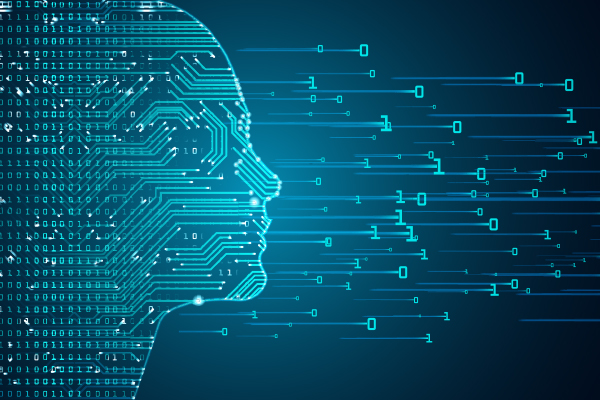
Artificial Intelligence is an advanced technological tool that has begun to gain momentum worldwide in recent years, affecting the entire world as well as intellectual property laws. The main challenges in this field stem from the fact that the intellectual product to be protected is created by a machine and not by a human.
Artificial Intelligence – What Is It?
Artificial Intelligence (AI) is a system with independent choice capability that mimics human thought mechanisms, where the result is not predetermined by a human. A common artificial intelligence technology is the internet use of bots, entities that scan the internet and copy information according to user requests. Additionally, Deep Fake technology allows creating the illusion that known and unknown figures participate in synthetic video clips. The field of Deep Learning allows the machine to teach itself how to improve its activity based on data and image analysis without human intervention, unlike Machine Learning where the programmer inputs data into the system to teach it how to refine its activity.
The most relevant technologies for our matter relate to artificial intelligence technologies that produce works protected by copyright law such as: literary, artistic, musical, dramatic, and architectural works. Thus, there are programs that independently produce songs or create unique paintings randomly or based on user-input data. For example, the DALL-E program turns any text input by the user into a realistic image. Another relevant area concerns artificial intelligence that produces patentable inventions.
The Owner of Copyright or Patent Inventor
According to Section 33 of the Copyright Law, the first owner of a work is the creator. There are several exceptions to this rule, for instance in cases where the employee in an employer-employee relationship is the creator (Section 34 of the Law) and cases where the work was created or commissioned by the state (Section 36 of the Law).
According to patent law, the inventor of the invention is one who made a substantial contribution, qualitatively and not quantitatively, to the creation of the invention. That is, one who thought of the invention and conceived the idea underlying it. Generally, according to Section 1 of the Patent Law, the inventor of the invention (or their representative) is the first owner of the patent unless otherwise decided in an agreement.
Ownership of Works or Inventions Created by Artificial Intelligence
Unlike the classic cases mentioned above, when the creator/inventor is artificial intelligence, there is no external intervention in the product, so the question arises as to who will be given ownership, and consequently, the rights to the work/invention.
Several possible alternatives can be considered regarding potential owners of the work/invention:
World Jurisprudence Regarding Artificial Intelligence
Due to the accelerated technological development and the difficulty of the law to keep pace, there is currently a lack of binding rulings on the subject. A first-of-its-kind Australian judgment in the field deals with the question of whether the artificial intelligence “DABUS” (Device for the Autonomous Bootstrapping of Unified Sentience) can be registered as an inventor. The machine consists of neural networks that transfer visual, linguistic, and auditory information between them, which together produce unique and complex ideas that eventually become patentable inventions. The Federal Court in Australia ruled that as long as there is no provision in Australian patent law that precludes the possibility of artificial intelligence being a patent inventor, artificial intelligence can be recognized as an inventor, in accordance with option 2 above.
Professional Guidance for Copyright or Invention Protection
Especially in an advanced and relatively new technological field like protecting artificial intelligence products, there is special importance to close legal advice both to create protection for the products from the outset and to deal with attempts at infringement and appropriation of the products. As a leading law firm and patent attorneys in the field of intellectual property, our firm has over 30 years of experience representing over 8,000 clients and extensive expertise in protecting copyrights and patents. The firm has a professional team of intellectual property lawyers providing legal advice to creators and inventors both in registering rights and in legal protection in case of infringement.
*The content in this article and on the website in general should not be seen as legal advice and should not be viewed as a substitute for individual legal advice but rather as a personal opinion and/or general explanation only. Of course, one should not rely on or act in accordance with the above without individual legal advice from a lawyer.
For any questions on this topic, contact us
אתר מונגש
אנו רואים חשיבות עליונה בהנגשת אתר האינטרנט שלנו לאנשים עם מוגבלויות, וכך לאפשר לכלל האוכלוסיה להשתמש באתרנו בקלות ובנוחות. באתר זה בוצעו מגוון פעולות להנגשת האתר, הכוללות בין השאר התקנת רכיב נגישות ייעודי.
סייגי נגישות
למרות מאמצנו להנגיש את כלל הדפים באתר באופן מלא, יתכן ויתגלו חלקים באתר שאינם נגישים. במידה ואינם מסוגלים לגלוש באתר באופן אופטימלי, אנה צרו איתנו קשר
רכיב נגישות
באתר זה הותקן רכיב נגישות מתקדם, מבית all internet - בניית אתרים. רכיב זה מסייע בהנגשת האתר עבור אנשים בעלי מוגבלויות.